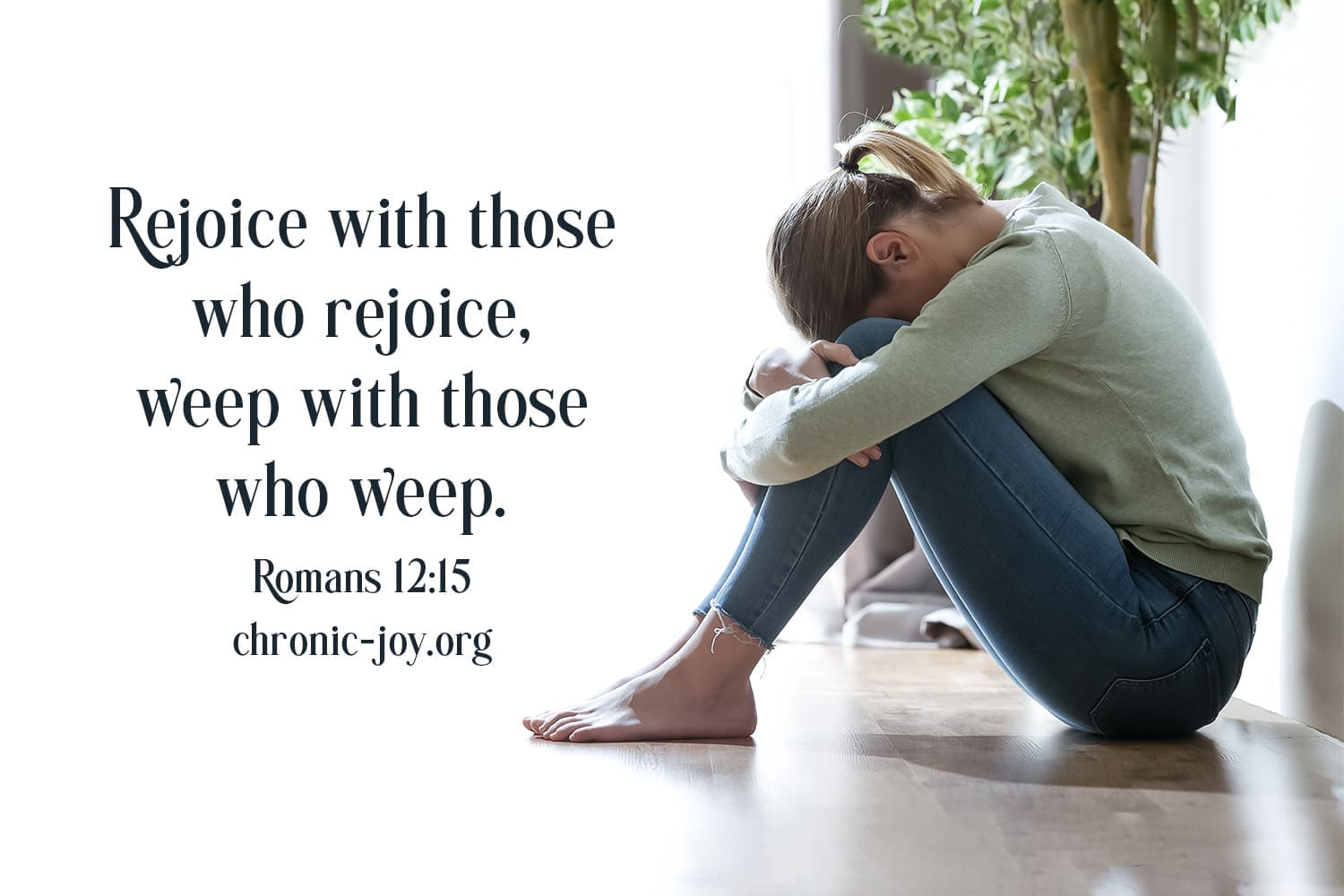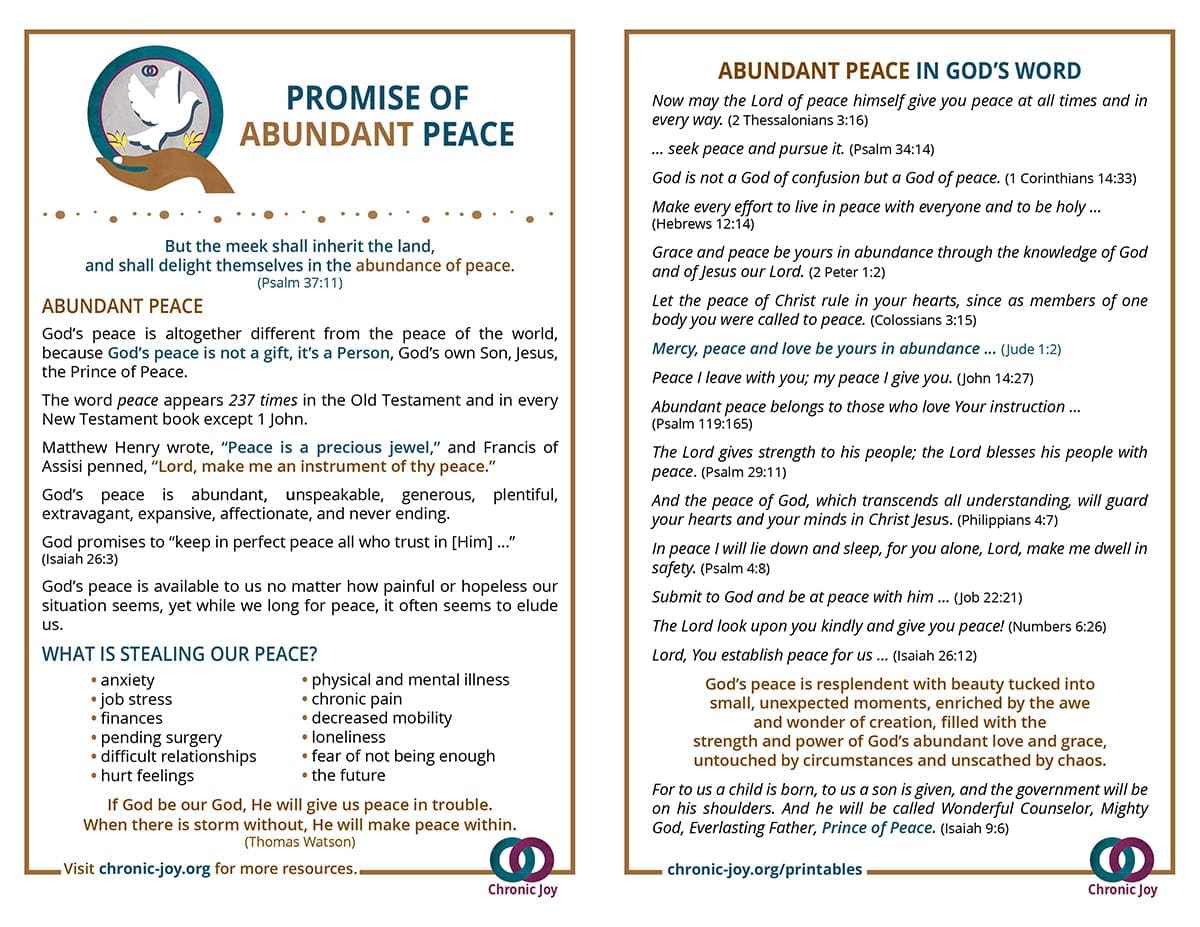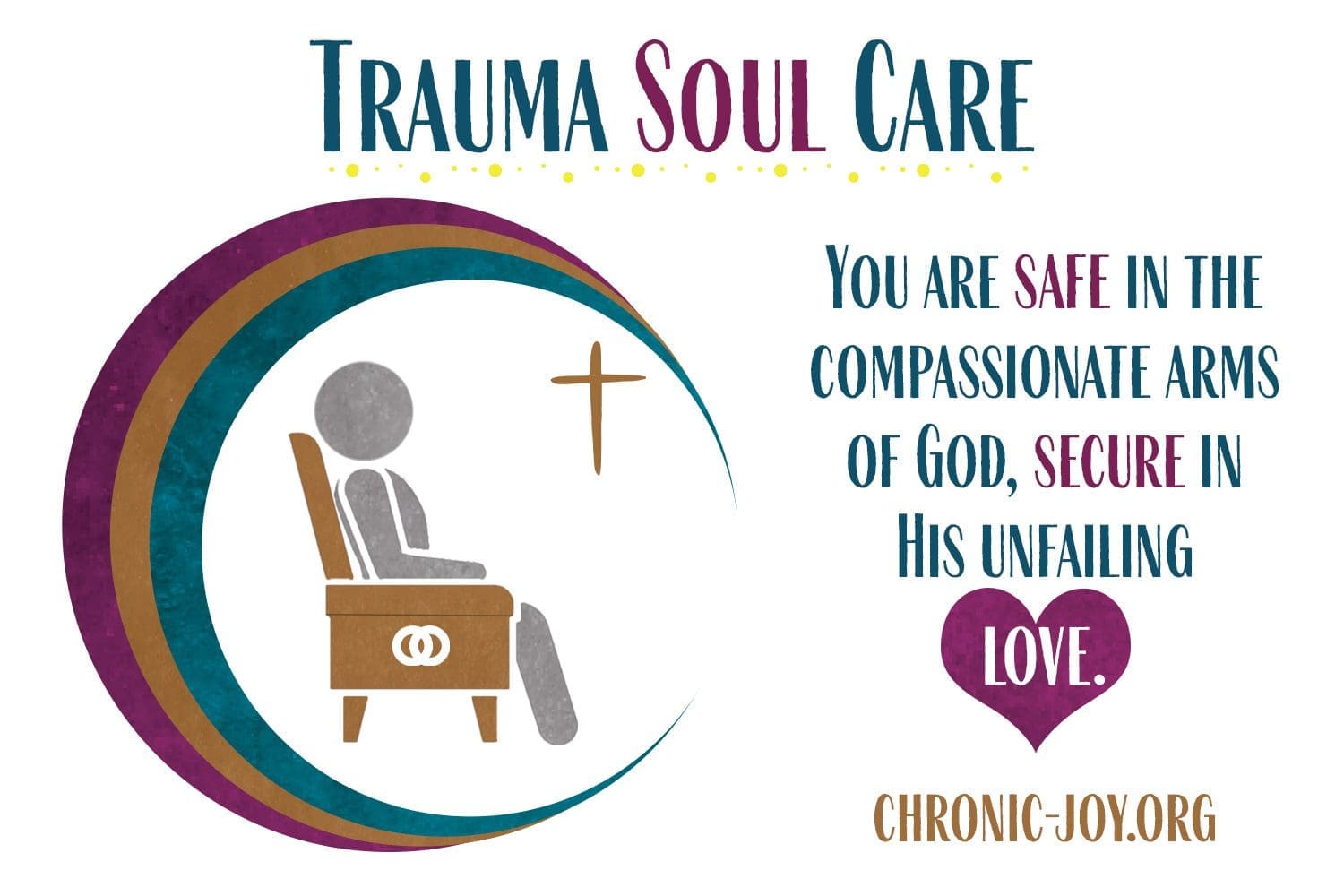
Rejoice with those who rejoice, weep with those who weep. (Romans 12:15)
STRUGGLING WITH TRAUMA
Traumatized people often cannot describe what they are feeling because their brains have been reshaped so that they do not know how to discern what the sensations in their bodies mean. Being unable to tell what’s going on in their bodies makes it almost impossible for traumatized people to communicate their needs. Instead of formulating a reply about their feelings, their brain connects with actions and responses. It is common enough that there is even a term for it: alexithymia – meaning not having words for feelings.
Trauma shuts down the parts of the brain that discern things and puts a person in the part of the brain that does things or reacts to things: fight, flight, freeze, or fawn. That part of the brain has no words and does not know time. Traumatized people think they are thinking, but they’re not. They’re reacting.
When certain memories are triggered, the traumatized person’s response is shutting down/spacing out/dissociatin—maybe even taking on the same physical posture they did when the original wounds were inflicted.
FINDING HELP
Naming these things is a beginning. Finding help is a whole other thing. Until they get help, traumatized people will function and dysfunction out of a brain that has entire parts of it shut down. They will struggle to maintain healthy relationships. They will struggle at work because a boss will yell at them, and they’ll either shut down or have a raging fit because that’s what traumatized people do.
We are all more alike than we are different. At the bottom of every addiction, every dysfunctional behavior, and every mental illness is trauma. *Trauma and addiction are more statistically related than diabetes and obesity. Until we figure out that the way we respond to hurting people often further hurts them instead of helping them, we will not be able to heal the deepest wounds in ourselves.
What we don’t know is that many of us already have experienced trauma, and its memory is kept in our bodies. It comes out when confronted by the suffering of others (which triggers our own emotional flashbacks). We think we’re thinking, but we’re not. We’re reacting.
PRAYER
Oh God of weeping people, hold us close to You amid our confusion and grief, our trauma and unrest, our disconnections. You meet us with deep compassion. Help us not numb our pain, but in our grief and our brokenness, bring us back to relationship and community – and You.
In our woundedness, tend our bodies and souls like a patient gardener. As the struggle deepens, let us gather what we have so that our small victories may end in triumph. When it is our turn to help, remind us not to offer cheap affirmations but sacrificial love, love that costs, and love that changes us.
Be with us as we weep, work through our fear, and begin to walk again through Your world. Amen.


Max Ramsey
Max Ramsey is a servant, Christ-follower, seeker of the Kingdom of God, pastor at Immanuel Church (Brookfield), co-founder of StreetLife Communities Milwaukee, site manager at Despensa de la Paz, husband, father, and grandfather, with a deep and genuine love for all God’s people.

Promise of Abundant Peace
God’s peace is altogether different from the peace of the world because God’s peace is not a gift; it’s a person: God’s own Son, Jesus, the Prince of Peace. God’s peace is abundant, unspeakable, generous, plentiful, extravagant, lavish, expansive, affectionate, and never-ending.

Trauma Soul Care
You are safe in the compassionate arms of God, secure in His unfailing love. The fear, shame, and pain of our pasts can keep us feeling unwanted and unlovable. However, God sees, hears, knows, and loves us. We are always safe in God’s abundant love, no matter what.

Recent Comments